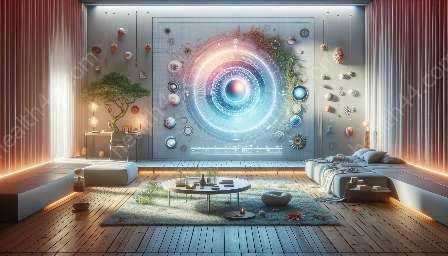The psychological aspects of binocular vision delve into the intricate processes of how the human brain perceives and processes visual information when using both eyes. Binocular vision, also known as stereopsis, plays a crucial role in depth perception, spatial orientation, and the integration of visual cues. This topic cluster will explore the psychological implications of binocular vision and its impact on visual perception.
Understanding Binocular Vision
Binocular vision refers to the ability of an organism to create a single, three-dimensional image of its environment by combining the visual input from both eyes. This ability provides humans with depth perception, enabling us to gauge distances, perceive the volume of objects, and navigate our surroundings effectively. The process of binocular vision involves the coordination of both eyes to create a unified perception, contributing significantly to our visual experiences.
Psychological Experiences of Binocular Vision
1. Depth Perception: Binocular vision allows individuals to perceive depth and distance accurately. The brain integrates the slightly disparate images received from each eye, using the differences in perspective to infer depth and form a comprehensive understanding of the environment.
2. Spatial Orientation: Binocular vision aids in spatial awareness and orientation. The brain utilizes the information from both eyes to construct a coherent representation of the surrounding space, contributing to activities such as hand-eye coordination, balance, and motor skills.
3. Cognitive Processing: The complex interaction between the eyes and the brain during binocular vision influences cognitive processes such as attention, memory, and decision-making. The visual input from both eyes is intricately linked to higher-order cognitive functions, impacting how we perceive, interpret, and interact with the world.
Binocular Vision and Visual Perception
Binocular vision significantly influences visual perception, shaping how individuals interpret and respond to visual stimuli. The following aspects highlight the connection between binocular vision and visual perception:
1. Depth Cues: Binocular cues such as retinal disparity and convergence provide essential depth information to the brain, leading to the perception of depth and spatial relationships in the visual field.
2. Visual Illusions: The interplay of binocular vision and visual perception contributes to the phenomenon of visual illusions, where discrepancies between the images from each eye can result in perceptual distortions and misinterpretations.
3. Virtual Reality: Understanding binocular vision is crucial in the development and optimization of virtual reality (VR) experiences. By replicating the mechanisms of binocular vision, VR technology aims to create immersive and realistic visual simulations, offering users a compelling sense of depth and perspective.
The Role of Binocular Vision in Cognitive Development
1. Infancy and Early Development: The maturation of binocular vision is closely linked to the cognitive development of infants. As binocular vision becomes established, it enables infants to explore their surroundings, recognize faces, and develop essential visual skills.
2. Learning and Education: Binocular vision influences learning processes and educational experiences. It facilitates activities such as reading, writing, and spatial reasoning, emphasizing the importance of early detection and management of binocular vision disorders in educational settings.
Binocular Vision Disorders and Psychological Implications
Disruptions in binocular vision can lead to various visual impairments, affecting not only visual function but also psychological well-being. Conditions such as strabismus, amblyopia, and convergence insufficiency can impact self-esteem, social interactions, and emotional health due to their effects on visual perception and cognitive processing.
Conclusion
Binocular vision encompasses a wealth of psychological implications, shaping how individuals perceive and interact with the world visually. By understanding the intricate processes of binocular vision and its impact on visual perception, we gain insight into the complexities of human vision, cognition, and psychological experiences. Exploring the psychological aspects of binocular vision not only deepens our understanding of the human mind but also offers valuable insights for fields such as clinical psychology, education, and virtual reality development.


